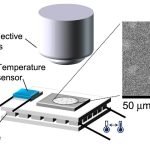AI chatbots may be the future of personality tests in job hiring
Chatting to Reveal True Personality
Ever sat through a job interview answering questions from a personality test? These tests are a common way companies try...
AI could help doctors find hidden brain aneurysms
A new study from UTHealth Houston shows that a computer program could do a better job than doctors at spotting dangerous aneurysms in the...
What is USB-C? A computer engineer explains the one device connector to rule them...
USB-C is a small, versatile connector for mobile and portable devices like laptops, tablets and smartphones.
Can machines really “think”?: the debate on computer smarts and self-awareness
Have you ever chatted with a customer service bot online and wondered, "Is there a real person behind this?" With the rise of smart...
Supercharged magnetic swirls could make future computers fast and energy-efficient
Ever find your laptop getting hot when you're using it? That's because computers need a lot of energy to work.
They use something called "electrons"...
AI can predict survival after brain injury
Two Students Make Big Discovery
Two smart grad students, Matthew Kolisnyk and Karnig Kazazian, have come up with a new way to guess which patients...
3D-printed ink makes fake heart tissue beat like a real one
Heart disease is the top reason people die in the United States.
Scientists want to find new ways to cure this disease and even create...
AI can offer quick assessment for Parkinson’s disease, study finds
A New Way to Evaluate Parkinson's
Researchers at the University of Rochester have created an artificial intelligence (AI) tool that could change the way people...
New AI system makes autonomous cars smarter and faster
The Problem: Existing Tech Isn't Fast or Accurate Enough
Driving a car safely isn't just about what you see right now; it's about predicting what...
Human-AI partnerships can improve source search outcomes
The Limitations of AI Robots in Dangerous Jobs
We often hear about robots coming to the rescue in dangerous situations, like fires or gas leaks....










